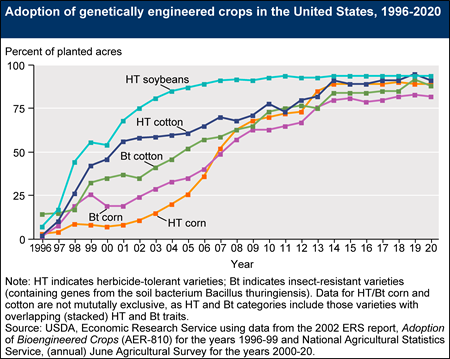Yes,
it can, and Russia is furnishing abundant proof:
(Both
links from gizadeathstar.com)
Farming
may also make a major contribution to re-ordering world politics very
soon. From Dr Joseph Farrell:
Beginning with statements made years ago on
the late George Ann Hugh's The
Byte Show, in recent years I've been arguing a hypothesis that I
call "GMO geopolitics." The basic idea is that, with growing
worldwide focus on the alleged safety and "higher yields" of GMO vs.
natural crops, a perfect vehicle would be created for Russia to represent
itself as the champion of natural heirloom seeds and non-GMO crops. Much more
recently, I pointed out that this seems to be the case. That nation has
passed laws, and President Putin has signed them, banning GMOs altogether in
that country (and hence, big American and European "agribusiness"
cartels like I.G. Farbensanto) until long-term intergenerational studies can be
undertaken to evaluate the claims made for GMOs. We know the story: ever since
F. William Engdahl's Seeds of
Destruction Marie-Monique Robin's The World According to Monsanto, there has been an
increasing concentration on the scientific claims made for GMOs, and
independent studies of carcinogenic relationships, and even of falling yields
against rising costs over time, have been suppressed by the "Big
Food" combines.
In Russia's case, my "GMO
geopolitics" hypothesis has two edges: (1) that Russia would have to ban
GMOs to keep its agriculture - and hence an important part of its national
security and sovereignty, out of western agribusiness hands, and (2) that this
would enable Russian agriculture to become a supplier on world markets to
farmers not wanting to do business with the likes of I.G. Farbensanto. I'm old
enough to remember Russia's constant need, under the Soviet Union, to import
western grain to make up for shortfalls in its own production. The flip side of
this GMO geopolitics is, of course, that the agri-cartels that have such
influence over western governments have moved aggressively to spread the
reliance on their "product" around the world. IN a certain sense, we
could replace the old Cold War "Western bloc" and "Communist
bloc" with "non-natural food bloc" and "natural food
bloc."
. . .
. . . None of this will happen overnight, but
rather, over the next two or three decades. But if allowed to develop, this
"GMO geopolitics" could easily remake the geopolitics of the Far
East, and reach out and even engulf India, where farmers have been caught in
the GMO vice to the extent that opposition has grown to New Delhi's policies.
If India should ever slow down or halt its backing of GMOs, then one can
imagine at least one country they might turn to for "heirloom seeds."
. . .
Source: https://gizadeathstar.com/2018/03/of-gmo-geopolitics-and-silk-roads/,
opened 22 March 2018
There
are a lot of people in the States and in Western Europe who want to portray Vladimir
Putin as some kind of monster (for one ridiculous ensample, ‘Putin is gassing
Syrian children’, claimed talk radio host Bill Cunningham last Sunday, 18
March). The farming heavy South ought
not to believe such vicious lies, but rather to look to him for ideas and
inspiration. Here is what Pres Putin
said earlier this year to the Russian Duma:
In the early 2000s, we were
deeply dependent on food imports. The situation has turned around
completely. Now we are on the verge of more changes.
In just four years from now, we plan to be supplying more food
to global markets than we will be importing from abroad. We need
to increase exports of meat and high-added value products,
as well as to make the country more self-sufficient
in beef, milk and vegetable supplies.
I want to stress that development
of the agricultural industry is strongly related to commodity
production. However, this development must not be at the expense
of small farms and their workers. We must support family businesses
and farmers. We will develop cooperative agriculture and create
conditions for residents of rural areas to increase their
income. Every now and then we hear about problems with people’s interests
being affected, I am aware of them. Such cases must be taken very
seriously.
Nevertheless, I want to say thank
you to the agricultural industry workers
for the record-breaking harvest of 134 million tonnes. Note that
it is more than the record harvest in the Soviet Union. In 1978,
the USSR produced 127.4 million tonnes. Now it is common for Russia
to exceed 100 million tonnes.
Clearly, such a large harvest has
a downside as well. The prices have gone down; there are some storage and transport
issues. We have established discount rates on transporting crops
by railway until July 1, 2018, to support our producers.
It is necessary to consider extending
this measure to the next harvesting seasons as well as to arrange
additional deliveries to the Urals, Siberia and the regions
far away from ports. We must help those who want and can process crops
locally. Added value needs to be increased. Then we can go into the livestock
industry with this product. We will certainly discuss these and other
problems reported by agricultural workers at the agricultural
producers’ forum in March, and will elaborate on additional
measures to support the industry. (Boldface emphasis added)
Source: Ibid.
With
the South swimming in toxins thanks to GMO crops that dominate her agriculture
(corn, cotton, soy beans),
Picture
from https://www.ers.usda.gov/data-products/adoption-of-genetically-engineered-crops-in-the-us/recent-trends-in-ge-adoption.aspx,
22 March 2018
now
would be an excellent time for her to free herself from thralldom to Monsanto,
etc., clean up her polluted farmlands, and join the developing bloc of non-GMO
nations:
***
Some
encouraging agricultural news from the States:
--
Holy
Ælfred the Great, King of England, South Patron, pray for us sinners at the Souð, unworthy though we are!
Anathema
to the Union!

No comments:
Post a Comment